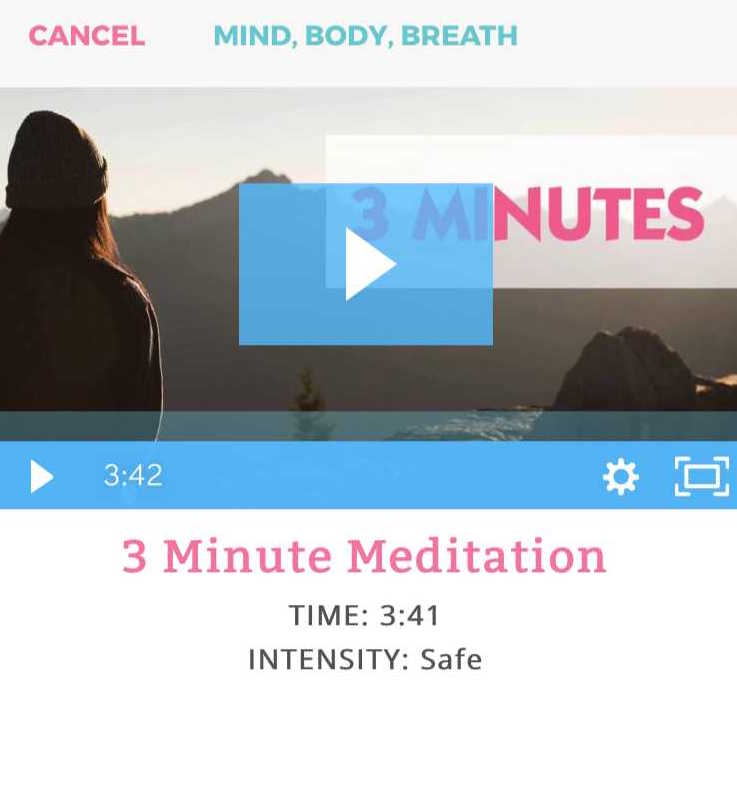Psychotherapist shares techniques on how to cope with stress and anger
Even the most patient and calm person will experience anger and stress at some point or another. Here are some warning signs and possible ways to cope.
Even the most patient and calm person will experience anger and stress at some point or another.
Daily annoyances are part of modern life – there’s a traffic jam, you lost your favourite earrings, your toddler is having a tantrum.
It’s when stress and anger are having a bigger, more disruptive impact upon your daily life, that’s when you know it’s time to reach out for help.
Here are some warning signs and possible ways to cope…

What exactly are anger and stress?
Any emotion is a response to an event. There is a psychological and physical response to anger and stress as the brain releases hormones and neurotransmitters such as dopamine, epinephrine, noradrenaline and cortisol.
With this coursing through your brain and body, you’re physiologically ready to fight.
Your blood pressure is raised, your heart rate is up and being in this state of frequent elevation is not healthy. It is often our perception of an event that affects anger and stress.

Warning signs that anger and stress is becoming a problem
Being in such a state frequently inevitably leads to a host of psychological and physical health issues.
Over time, attempting to regulate your anger and stress levels can be near impossible if left to continue at such levels.
This may develop into:
- Anger management issues.
- Manifest in domestic violence or aggressive or violent behaviour towards others in public.
- Negative responses such as binge eating- which can lead to heart disease, diabetes, obesity and cancer.
- Excessive drug and alcohol use.
But you can change the way you think and feel with a little practice and commitment.
If you find yourself getting angry and stressed quicker than most, changing the way you interpret and react to events, may be helpful to you as you try to cope with life. It’s called ‘cognitive restructuring’.

3 tips to help you manage your anger and stress
Here are a few tips on how to manage it yourself:
1. Recognise
The first step in any process of change is to realise what the issue is. Do you jump to conclusions without knowing the full picture? Is your response to stressful events emotional rather than logical? Do you often think in extremes?
These are called cognitive distortions and are the way we interpret events. They playing a massive role in increasing emotions like anger and stress. If you can isolate your interpretation and reaction to events, your cognitive distortion will become obvious to you.
You can do this by writing down the thoughts you have before, during and after a stressful event.
2. Challenge
You are now aware of what your cognitive distortion is and how it impacts on the way you interpret an event. Start questioning why you interpreted that event in that way.
Ask others, if possible, how they interpreted it and what their response would be. It can be hard to remain objective and refrain from feeling defensive but if you can allow yourself to be open to challenging yourself and preserver; you are on your way to making a healthier change.
The Healthy Mummy support groups provide excellent, nurturing environments for you to bounce ideas off other mums who are or have been in your shoes.
3. Change
If you are in a stressful event that causes you to become angry the key is to try and stay present for the problem at hand and find a solution that works.
Be warned this is not easy to do at first, especially when you’re in the depths of feeling that anger and stress. Practice will enable you to cope with such strong emotions- start small with the annoying little things in your daily routine.
Whether it’s the hot water that’s run out or you have a lot to do at home along with a deadline at work.
Try to focus on the issue and possible solutions around it. You’ll find that by being proactive in finding a solution, you’re feeling more in control over the outcome, which can decrease your experience of stress and anger and increase your positive outlook.

When to get help for anger issues
If you’re finding that you can’t manage your stress and anger on your own, don’t despair. There is help and guidance available from mental health professionals. See your GP to get the ball rolling to a happier and healthier you.
If you are in a domestic violence situation, please know there is so much support and help out there.
Call 1800RESPECT on 1800 737 732 for around the clock support and counselling.
If you are in danger call 000 immediately.
The 28 Day Weight Loss Challenge has MIND, BODY & BREATH sessions
The Healthy Mummy MIND, BODY & BREATH sessions are designed to support mindful motherhood (and compliment your exercise program while following the 28 Day Weight Loss Challenge).
It is designed to help reduce stress and improve mood among pregnant women and early mums, enhance your connection with self-care practices and really thrive through the transformation of motherhood.
About The Healthy Mummy MIND, BODY & BREATH sessions

There are three Healthy Mummy MIND.BODY.BREATH sessions for you to choose from:
- 3 minute
- 5 minute
- 10 minute
All Healthy sessions begin with a MIND.BODY.BREATH warm-up, to get you settled and prepared.
We recommend you begin your Healthy Mummy guided MIND.BODY.BREATH practice by doing it twice a week.
Start slow and gradually grow your practice so that it becomes a habit. Your aim is to be able to do it daily. Set a reminder for yourself as a morning or bedtime ritual. Find a time that works for you.
Find your inner peace and relax with the awesome meditation section we now have on the 28 Day Weight Loss Challenge.










